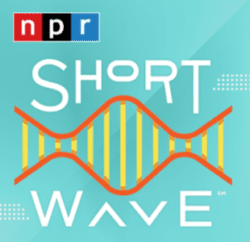Imagine building a better clock — with entangled atoms.
Sound difficult? Not for Monika Schleier-Smith, associate professor of physics at Stanford University and 2020 MacArthur Fellow.
Schleier-Smith studies quantum mechanics, the theory that explains the nature of really small things: atoms, photons, and individual particles (e.g. electrons). Quantum mechanics is responsible for innovations in computers, telecommunications, and medicine. And those innovations often start in a lab.
Today on Short Wave, Schleier-Smith takes us into her laboratory — of lasers and mirrors — to break down what’s at work. We discuss her 2010 paper in the journal Physical Review Letters, in which she and her colleagues demonstrated the first atomic clock that harnessed the properties of quantum entanglement for greater precision.
Currently, the Schleier-Smith lab is venturing deeper into the quantum realm. They’re engineering systems to control interactions between particles that are long-ranged or non-local, which has implications for enabling new computational paradigms and building table-top simulations of quantum gravity.
To see all of this year’s MacArthur Fellows, click here.
Short Wave Podcast
It’s science for everyone, using a lot of creativity and a little humor. Join host Maddie Sofia for science on a different wavelength.




